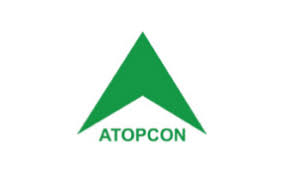The Nigerian housing sector is grappling with the detrimental effects of multiple taxation, a burden that stakeholders say is stifling growth and discouraging development. Industry experts, including the President of the Association of Town Planning Consultants of Nigeria, Bisi Adedire, have highlighted the numerous levies imposed on land by various government ministries and agencies. While acknowledging the necessity of these levies for funding essential services, Adedire stressed the undue hardship they place on property developers, particularly the requirement for upfront payment before construction even commences. This upfront payment structure, he argues, places an unreasonable financial strain on developers and hinders project initiation. The call to action is directed at the Federal Government to re-evaluate the current system and implement a more equitable approach that benefits all stakeholders, fostering a more conducive environment for housing development.
This sentiment is echoed by estate surveyor Olorunyomi Alatise, who links the multiplicity of taxes to the reluctance of property owners to regularize their land titles. The process of obtaining a Certificate of Occupancy, a crucial document for establishing land ownership, is entangled in a web of tax requirements, including tax clearance certificates, capital gains tax, and land use charges. These cumulative costs, Alatise argues, create a significant financial barrier, especially for newly acquired properties, and deter individuals from formalizing their ownership. The sheer volume of required payments often outweighs the perceived immediate benefits of securing legal documentation, leaving many property owners in a precarious legal position and contributing to informality in the sector.
While acknowledging the government’s responsibility to provide services and the corresponding need for revenue generation, Oluwole Sotire, Permanent Secretary of the Ministry of Physical Planning and Urban Development in Lagos State, emphasizes the importance of stakeholder engagement in determining equitable taxation policies. He advocates for a more inclusive approach to urban planning and governance, ensuring that the burden of taxation is distributed fairly and transparently. Sotire’s perspective introduces a crucial element to the discussion: the need for a balanced approach that considers both the government’s need for revenue and the citizens’ ability to pay. He suggests that open dialogue and collaboration between government and stakeholders are essential for creating a sustainable and just taxation system.
However, Sotire also sheds light on a darker side of land administration: the exploitation of regulatory loopholes by individuals, including government officials, for personal gain. He cites a specific case in Ogun State where a Certificate of Occupancy, legally issued for a 4.5-hectare plot of land, was partially undermined by other government officials who subsequently issued another C-of-O for a portion of the same land. This example highlights not only the vulnerability of the system to manipulation but also the frustrating lack of accountability and recourse for the original landowner. Such instances of corruption and malpractice erode public trust in the system and further complicate the already complex land administration landscape.
Babatunde Adeyemo, CEO of Pelican Valley, advocates for a more pragmatic approach to land acquisition, urging the government to adhere to due process and prioritize the provision of essential infrastructure in acquired areas. Using the Muhammad Buhari Estate in Kobape as a case study, he argues that the issue lies not in the acquisition itself but in the flawed implementation. Adeyemo emphasizes that development cannot thrive in the absence of basic infrastructure and services. He criticizes the practice of clearing land for development without first establishing the necessary infrastructure, questioning the practicality of expecting individuals to settle in areas devoid of essential amenities. His argument underscores the need for a more strategic and holistic approach to development, one that integrates infrastructure planning with land acquisition to create viable and sustainable communities.
In summary, the Nigerian housing sector faces a complex challenge in the form of multiple taxation. While revenue generation is critical for government operations, the current system places an undue burden on developers and property owners, hindering growth and discouraging formalization. Stakeholders are calling for a more balanced and transparent approach, one that prioritizes stakeholder engagement and equitable distribution of the tax burden. Furthermore, addressing issues of corruption and bureaucratic inefficiency within the land administration system is crucial to fostering trust and ensuring the sustainable development of the housing sector. The key takeaway is the need for a comprehensive reform that considers not only the financial aspects of taxation but also the broader implications for development, access to housing, and public trust in the government’s ability to manage land resources effectively.


